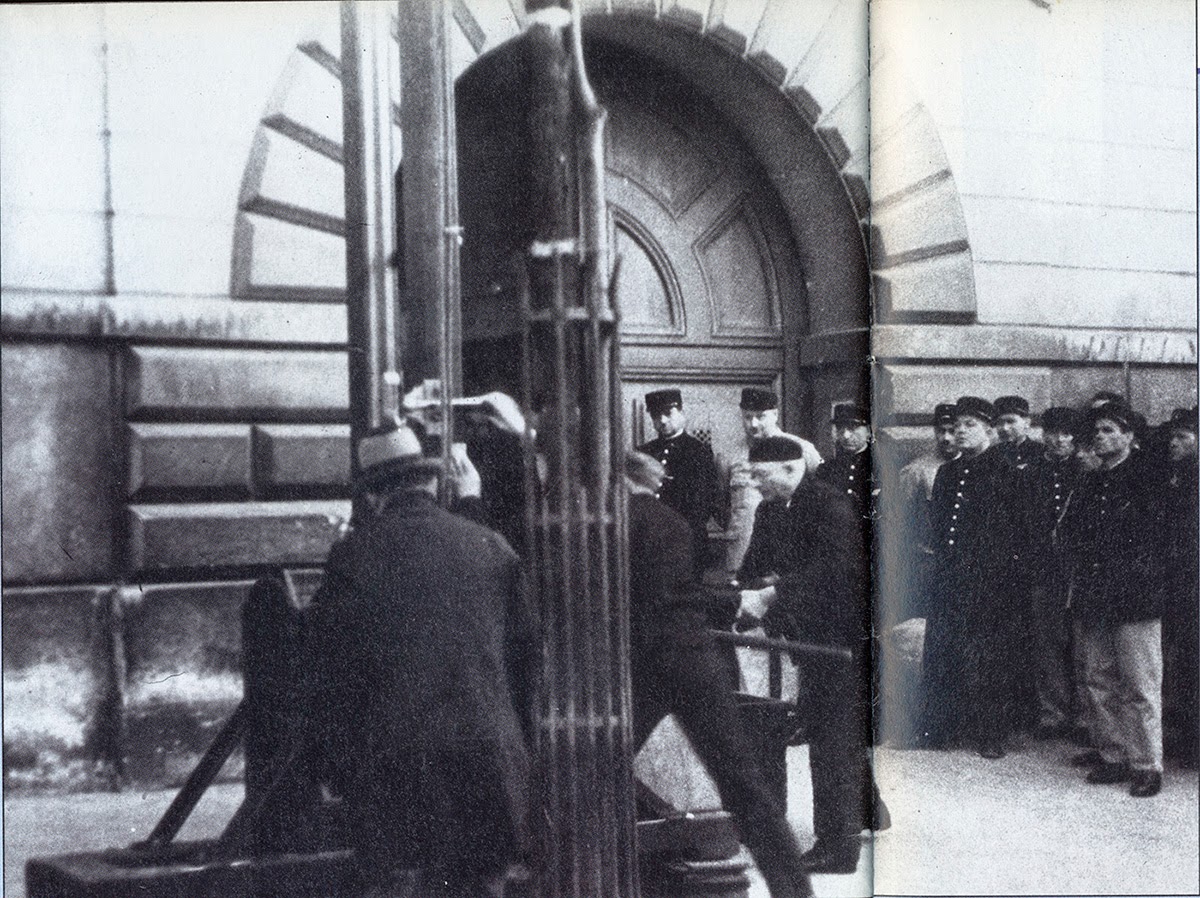

The Last Guillotine Execution In France: A Historical Perspective
The last guillotine execution in France marks a significant chapter in the history of justice and capital punishment. This event not only reflects the evolution of societal values but also serves as a point of reflection on the moral implications of the death penalty. The guillotine, a symbol of the French Revolution, became synonymous with swift and public executions. In this article, we will explore the circumstances surrounding the last execution, its implications, and its place in modern France.
Throughout history, the guillotine was seen as a humane method of execution, designed to minimize suffering. However, as public sentiment shifted towards abolition, the practice came under intense scrutiny. The last execution took place in 1977, marking the end of an era and paving the way for discussions about human rights and the justice system in France.
In this comprehensive article, we will delve into the details of the last guillotine execution, including its historical context, key figures involved, and the societal reactions that followed. We will also discuss the implications of this execution on the legal system in France and how it reflects broader global trends regarding capital punishment.
Table of Contents
- Historical Context of the Guillotine
- The Last Execution: Key Details
- Biography of the Executed
- Public Reaction to the Last Execution
- Legal Implications of the Last Execution
- Global Perspective on Capital Punishment
- Abolition Movements in France
- Conclusion
Historical Context of the Guillotine
The guillotine was introduced in France as a method of execution during the French Revolution in 1789, as a means to promote equality in death. The device was designed to be a more humane alternative to previous methods of execution, which were often brutal and torturous. Over time, the guillotine became a symbol of Revolutionary justice and was used extensively throughout the 19th and early 20th centuries.
The Evolution of the Guillotine
Initially, the guillotine was celebrated as a tool of equality, but its use became controversial as opinions on capital punishment began to change. The device was employed in various political purges and was often associated with the Reign of Terror.
Decline of the Guillotine's Popularity
By the mid-20th century, the guillotine's use was declining as more countries began to abolish the death penalty. The growing awareness of human rights and the moral implications of capital punishment contributed to this shift.
The Last Execution: Key Details
The last guillotine execution in France took place on September 10, 1977. The executed individual was Hamida Djandoubi, a Tunisian man convicted of murder. This execution marked a significant turning point in French history and the approach towards capital punishment.
- Date: September 10, 1977
- Executed Individual: Hamida Djandoubi
- Crime: Murder
- Location: Baumettes Prison, Marseille
Biography of the Executed
Hamida Djandoubi was born in Tunisia and later moved to France. His life and crimes highlighted various social issues, including immigration and integration within French society.
| Personal Information | Details |
|---|---|
| Name | Hamida Djandoubi |
| Date of Birth | 1949 |
| Date of Execution | September 10, 1977 |
| Nationality | Tunisian |
| Crime | Murder |
Public Reaction to the Last Execution
The public reaction to Djandoubi's execution was mixed. While some supported the death penalty as a form of justice, others protested against it, highlighting the need for reform in the legal system.
Protests and Advocacy
Human rights organizations, including Amnesty International, condemned the execution, arguing that it violated fundamental human rights. This execution became a focal point for abolitionists in France.
Media Coverage
The media played a crucial role in shaping public opinion, with extensive coverage of the event. This coverage led to increased scrutiny of the death penalty and discussions surrounding its morality.
Legal Implications of the Last Execution
The execution of Hamida Djandoubi had significant legal implications for France. Following this event, the French government began to reconsider its stance on the death penalty.
Reform Movements
In the years following the last guillotine execution, various reform movements gained traction, leading to the eventual abolition of the death penalty in France in 1981.
International Influence
The move towards abolition in France was influenced by global trends, as many countries began to reject capital punishment. France's decision to abolish the death penalty marked a significant shift in the global landscape of human rights.
Global Perspective on Capital Punishment
Globally, the conversation surrounding capital punishment has evolved significantly. Many countries have abolished the death penalty, while others continue to employ it, often facing criticism from human rights advocates.
Current Trends in Capital Punishment
- As of 2023, over 100 countries have abolished the death penalty.
- Countries that still practice capital punishment are often in the minority.
- The trend towards abolition is gaining momentum, with many nations reevaluating their legal systems.
The Role of Human Rights Organizations
Organizations such as Amnesty International and Human Rights Watch continue to advocate for the abolition of the death penalty worldwide, citing its inhumanity and lack of deterrent effect on crime.
Abolition Movements in France
In France, the abolition movement gained significant traction following the last guillotine execution. Activists campaigned vigorously, arguing that capital punishment was not only inhumane but also ineffective as a deterrent.
Key Figures in the Abolition Movement
Prominent figures, including former French Minister of Justice Robert Badinter, played a crucial role in advocating for the abolition of the death penalty. Badinter's passionate arguments against capital punishment were instrumental in swaying public opinion.
Legislation and Abolition
In 1981, France officially abolished the death penalty, a decision that was celebrated by human rights advocates and marked a significant milestone in the country's legal history.
Conclusion
The last guillotine execution in France serves as a poignant reminder of the complexities surrounding capital punishment and the evolution of societal values. It highlights the ongoing debates about justice, morality, and human rights. As we reflect on this significant event, it is essential to consider the implications of capital punishment in our modern society.
We encourage readers to share their thoughts on this topic in the comments section below. If you found this article informative, please consider sharing it with others or exploring more articles on our site regarding historical events and social justice.
Astoria Restaurant Cleveland: A Culinary Gem In The Heart Of The City
Celtic FC Women: A Comprehensive Guide To The Team's History, Achievements, And Future Aspirations
David George Philip Cholmondeley: A Comprehensive Biography And Life Journey


